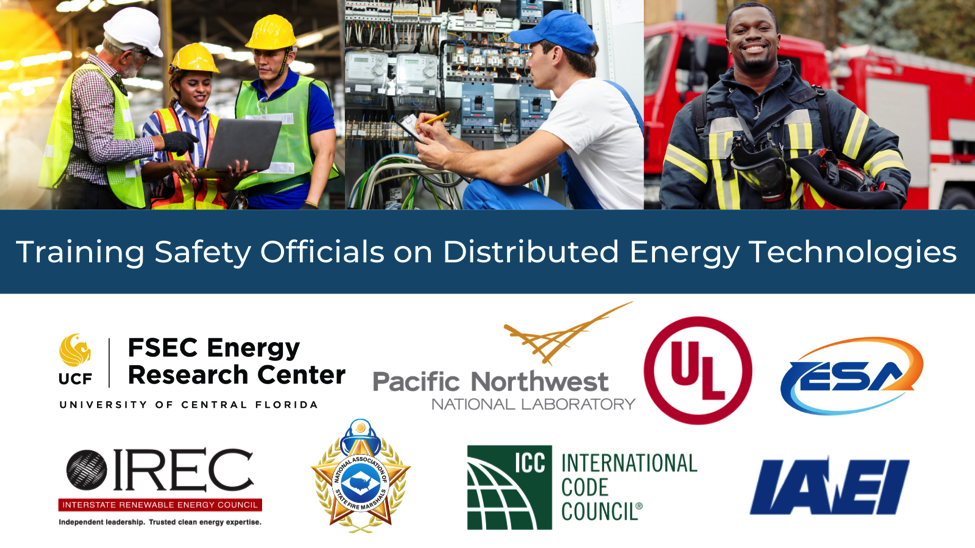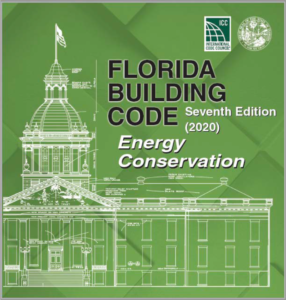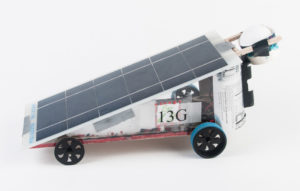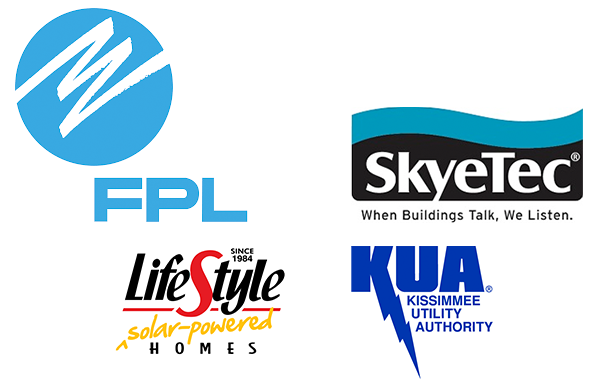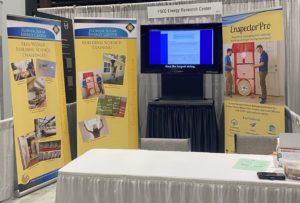 FSEC Energy Research Center (FSEC ERC) was proud to support and exhibit for another great year at the Southeast Building Conference (SEBC). Held at the Gaylord Palms Resort & Convention Center in Orlando, this well-attended regional building industry expo and education conference was a success. The excitement on the show room floor was electrifying, as everyone was pleased to be out and getting ready for a productive second half of the 2021 building season. For those not familiar with this event, take a moment to visit their website, https://sebcshow.com/.
FSEC Energy Research Center (FSEC ERC) was proud to support and exhibit for another great year at the Southeast Building Conference (SEBC). Held at the Gaylord Palms Resort & Convention Center in Orlando, this well-attended regional building industry expo and education conference was a success. The excitement on the show room floor was electrifying, as everyone was pleased to be out and getting ready for a productive second half of the 2021 building season. For those not familiar with this event, take a moment to visit their website, https://sebcshow.com/.
 Tei Kucharski and Jeff Myron of FSEC ERC’s Buildings Research were there promoting EnergyGauge with Kwik Model 3D. This latest software application is a quick and easy way of creating 3D computer models of any home. The best news about this app is that you do not have to use CAD software or have CAD experience. The Kwik Model 3D graphical interface works exclusively with EnergyGauge and provides easy input to EnergyGauge. For the EnergyGauge users out there that are gamers, you will really enjoy the super realistic video game platform utilized by Kwik Model. It is definitely intuitive, fast, and fun. Try it out now at Kwik Model and visit EnergyGauge websites.
Tei Kucharski and Jeff Myron of FSEC ERC’s Buildings Research were there promoting EnergyGauge with Kwik Model 3D. This latest software application is a quick and easy way of creating 3D computer models of any home. The best news about this app is that you do not have to use CAD software or have CAD experience. The Kwik Model 3D graphical interface works exclusively with EnergyGauge and provides easy input to EnergyGauge. For the EnergyGauge users out there that are gamers, you will really enjoy the super realistic video game platform utilized by Kwik Model. It is definitely intuitive, fast, and fun. Try it out now at Kwik Model and visit EnergyGauge websites.
ACHR News, one of the largest HVAC contractor’s news magazines, was delighted to announce that Coded Energy, the developers of Kwik Model, won the Silver award in the Contractor Services and Software Category. For more details, see the ACHR News announcement. Read more

